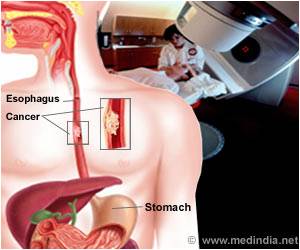A Leicester cancer research project funded by Hope Against Cancer is looking into the efficacy of bilberry extracts in preventing or delaying the onset of certain cancers.
A Leicester cancer research project funded by Hope Against Cancer (formerly The Hope Foundation,) is looking into the efficacy of bilberry extracts in preventing or delaying the onset of certain cancers.
Professor Andy Gescher, of the University of Leicester, is leading an investigation to carry out clinical trials with the commercially produced substance Mirtoselect (extracted from bilberries), with the cooperation of patients about to undergo surgery for colorectal and liver cancer.Among his research team are two Allison Wilson Fellows whose work is funded by Hope Against Cancer, Ms Sarah Thomasset and Mr. Giuseppe Garcea.
The research project, which takes place in the University of Leicester’s Department of Cancer Studies and Molecular Medicine and at the Leicester General Hospital, has already established that in a laboratory model Mirtoselect decreases the development of colorectal cancer.
Now, working with Mr. Dave Berry, Hepatobiliary surgeon at the General Hospital, they are looking to see how much of the bilberry extract actually gets into human tissue and whether there are changes in the tissue that may have been caused by the substance.
If so, then that indicates that taking the extract over a long period may be beneficial. If not, then the researchers have to decide whether it is feasible to increase the dose and whether it is right to go forward to a major clinical trial.
By comparing results with their laboratory model, the research team will have an indication as to how effective the bilberry extract is likely to be in preventing cancer. This will help them to design a protocol for a future clinical trial that will test whether it really does interfere with the onset of colorectal or liver cancer.
Advertisement
"In the future, these agents could be used as drugs to stop cancers from developing in apparently healthy people, or they could be used to prevent it recurring in patients who have had successful treatment of cancer. The ideal type of drug to use for this would be one with very few, or no, side effects, which could be taken daily for many years with no problems."
Professor Gescher commented: "We are interested in agents, many of them derived from diet, which may prevent cancer or delay its onset. For quite a number of years we have been working on curcumin, the yellow constituent of curry.
"Our current research, funded by Hope Against Cancer, involves berries, coloured blue or red, which contain chemicals called anthocyanins. These have long been suspected to have a beneficial effect in this sense.
"We take an individual chemical out of its context and investigate it. Instead of asking people to eat a punnet of bilberries, we ask them to take Mirtoselect, which contains anthocyanins. We also study whether anthocyanins are more efficacious when they are part of a dietary mixture. There is some evidence to say that this may be the case."
Developing a new drug, even one derived solely from fruit or some other food substance, is time-consuming, and Ms Thomasset is still recruiting colorectal and liver cancer patients to help with the study.
In the meantime, one of her principal tasks is to take body fluids such as urine and plasma from participating patients and check how much of the bilberry extract is present.
"This is an extremely expensive process, and it is this that the Hope funding pays for," explained Professor Gescher. "All the reagents Sarah needs, she can buy without using up our internal budget. It is fantastic for us. When we need to buy reagents for the analysis or antibodies there’s no problem. Unlike many of our colleagues, we don’t have to scratch our heads and take up time wondering where to get the money from. We are very fortunate."
Source-Eurekalert
GAN/C





